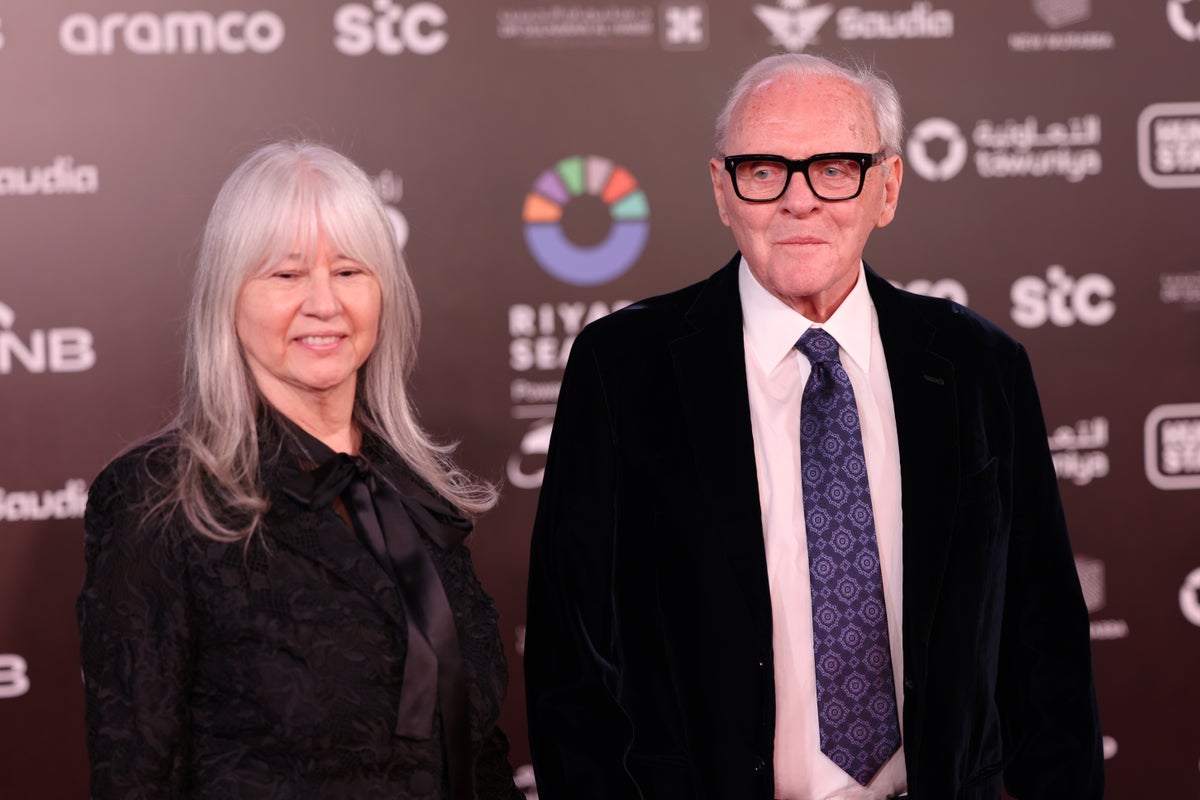Anthony Hopkins’ Denial of Autism Claims Sparks Outrage, Igniting Fierce Debate on Mental Health and Celebrity Accountability in Society’s Eye
The recent comments made by Anthony Hopkins regarding his wife’s suggestion that he may have autism have ignited a firestorm of controversy. The acclaimed actor, known for his intense performances and commanding presence, responded to his wife’s observations about his meticulous attention to detail and obsession with numbers by dismissing the notion as “all nonsense.” This exchange has raised questions not only about the nature of autism spectrum disorders but also about the responsibilities of public figures in addressing mental health issues.
Hopkins, who has long been regarded as one of the greatest actors of his generation, has also been open about his own struggles with mental health, including anxiety and depression. His dismissal of his wife’s concerns could be perceived as a reflection of a broader societal tendency to downplay or misunderstand mental health issues, particularly in men. The stigma surrounding mental health, especially in high-profile individuals, often leads to a reluctance to engage in self-reflection or to seek help, even when signs are evident.
The actor’s comments have sparked a divide among fans and mental health advocates. Some argue that his denial perpetuates harmful stereotypes about autism and mental health, suggesting that those who exhibit traits associated with these conditions should be more open to discussion and understanding. Others support Hopkins, viewing his response as a personal boundary and a rejection of labels that he does not identify with. This debate touches on a critical aspect of modern society: the intersection of celebrity culture and mental health awareness.
In recent years, there has been a significant shift in how mental health is perceived and discussed in public forums. Celebrities like Dwayne “The Rock” Johnson, Lady Gaga, and Selena Gomez have openly shared their struggles with mental health, helping to destigmatize these issues and encourage conversations around them. However, Hopkins’ stance raises questions about the extent to which public figures should engage with mental health discourse. Should they be obligated to acknowledge their mental health challenges, or is it their prerogative to maintain privacy regarding their personal lives?
Moreover, the conversation around autism is particularly nuanced. Autism spectrum disorder (ASD) encompasses a wide range of symptoms and characteristics, and individuals may exhibit varying degrees of traits associated with the condition. The public often grapples with the misconception that autism is easily identifiable or that those on the spectrum fit a particular mold. By dismissing the idea of autism outright, Hopkins risks reinforcing these stereotypes, which can lead to further misunderstanding and stigmatization of those who live with the condition.
The implications of Hopkins’ comments extend beyond the realm of celebrity. They reflect a broader societal challenge in recognizing and addressing mental health issues without judgment or stigma. The reluctance to label oneself or to accept a diagnosis can be a barrier to seeking help, and this is particularly evident in high-pressure environments such as Hollywood, where vulnerability can be seen as a weakness.
In light of this, it is essential to consider the role of spouses and loved ones in these discussions. The support system around individuals, especially those in the public eye, can play a crucial role in their mental health journey. Hopkins’ wife, who expressed concern over his behavior, represents a voice that often goes unheard in the narrative of mental health. Her observations could be seen as an act of love and concern, highlighting the importance of open communication and understanding within relationships.
The public’s reaction to Hopkins’ comments also underscores the complexities of celebrity culture. Fans often feel a personal connection to their favorite actors, leading to heightened emotional responses when those individuals make statements that clash with public understanding of mental health. This phenomenon can create a charged atmosphere where opinions are divided, and discussions can quickly escalate into heated debates.
As society continues to evolve in its understanding of mental health, the conversation surrounding autism and other conditions must be approached with sensitivity and care. Public figures like Hopkins have the opportunity to use their platforms to foster awareness and understanding, but they also face the challenge of navigating their personal experiences in the public eye. The balance between personal privacy and public accountability remains a contentious issue, one that will likely continue to spark debate as more individuals share their stories and experiences.
In the end, the dialogue surrounding Anthony Hopkins’ comments serves as a reminder of the ongoing struggle to understand and accept mental health issues in all their complexity. The intersection of celebrity, mental health, and societal expectations presents a rich field for exploration, one that invites us to consider how we engage with these topics in our own lives and communities.
The actor’s wife commented on his obsession with numbers and detail

